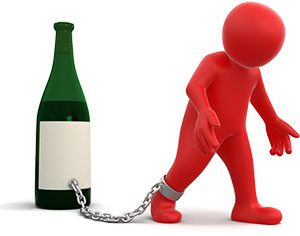What is a Dry Drunk: Exploring the Myth of the Dry Drunk Hypothesis
Disclaimer: Marcus is NOT a doctor or a trained addiction counselor. The information in these videos is provided as a resource only, and is not to be used or relied on for any diagnostic or treatment purposes. Nor is it to be used as a substitute when professional diagnosis and treatment is needed. Please seek professional help when needed. Alcoholism is serious… DON’T mess around! Visit www.TalkSober.com/help or get professional help.
What is a dry drunk? Someone who just wants to drink again?
A dry drunk is someone who has only taken away the component of alcohol in their life. Nothing has changed other than giving up drinking. This gets confused with wet brain, which refers to people who have the symptoms of being drunk even though they haven’t been drinking.
A dry drunk thinks: if I could give up alcohol, then I could x (be more productive, healthier, make more money, etc.) That might be true, but we want to look at why people are alcoholics in the first place.
Your drinking may be a symptom of something bigger. Is drinking in your life something bigger? A symptom of something else—abuse, trauma, bad thinking, etc.? Sometimes drinking is just the tip of the iceberg. It’s the “solution” to the other problems in your life. Dry drunks still have the attitudes, feelings, behaviors of alcoholics.
![[ File # csp10663613, License # 1918991 ] Licensed through http://www.canstockphoto.com in accordance with the End User License Agreement (http://www.canstockphoto.com/legal.php) (c) Can Stock Photo Inc. / kbuntu](https://talksober.com/wp-content/uploads/2017/10/Anxiety-words-300x225.jpg)
People can be in recovery for years and still be miserable. Drinking keeps you stuck.
I tried to get sober for a year and a half before I actually got sober. I thought if I could just get rid of the drinking I would be healthier, more productive, make more money, wouldn’t be depressed, etc.
Some programs refer to the Fourth Dimension of living when someone is in recovery. It’s like a whole new life. Your thoughts change, behaviors change, and attitudes change. I thought my drinking was the only problem that was stopping me from reaching the Fourth Dimension. But that wasn’t the only problem. I found out that every time I put the bottle down without fixing the underlying problem, I was just setting myself up for the next relapse.
Are you setting yourself up for the next relapse? Relapses are so common because the thoughts, attitudes, and behaviors do not change. What needs to change here is a fundamental shift in life philosophy.
We drink because:
- We don’t like our life.
- We feel like life is happening to us and we’re just responding to whatever happens.
- We feel like we are getting the short end of the stick.
- What happened in our past or what’s happening right now.
These attitudes, feelings, and behaviors are setting us up for a relapse. An emotional relapse happens long before that first drink. 
In life, if you are drinking as a symptom of something deeper, when those things start to creep in, and it’s very easy to go back to what worked in the first place. Drinking was a solution to a lot of your problems—not being able to emotionally respond, not being able to deal with your stinking thinking, not be able to deal with your life. Drinking was a solution that no longer works.
When you have those negative feelings creeping in, you might have anger, guilt, resentment, depression, grief, loss, jealousy, etc. If you don’t deal with them the right way, you’ll lead to an emotional relapse: reverting back into the negative emotions. The best way to change this is by changing your life philosophy—changing the underlying belief that governs your life.
Everyone has a life philosophy. Even if you haven’t thought about it until now, think about the philosophy that is governing your life. What’s governing your life?
- Feeling like you’re a victim of all of the things that have happened to you?
- Feeling like you’re getting the short end of the stick?
- Anger because everyone else is stupid, wrong, etc.?
- Feeling guilty, resentment, jealousy, etc. in your life?
When we start to change our life philosophy, everything starts to change. How to change your life philosophy:
- Subscribe to my Youtube channel called Talk Sober. Our other videos will talk more about life philosophy.
- Go to TalkSober.com/Life, and check out the page. There are videos on how to make a new life philosophy, worksheets, and more.
Scientists say we usually have about 40,000 thoughts in our brain every day. Start to notice what you’re thinking about all the time. Feelings are like barometers. We don’t have to trust every single feeling, we just listen and see what might be useful, and what might not be useful.
Not being a dry drunk is about being better.
For more information, visit www.TalkSober.com.
